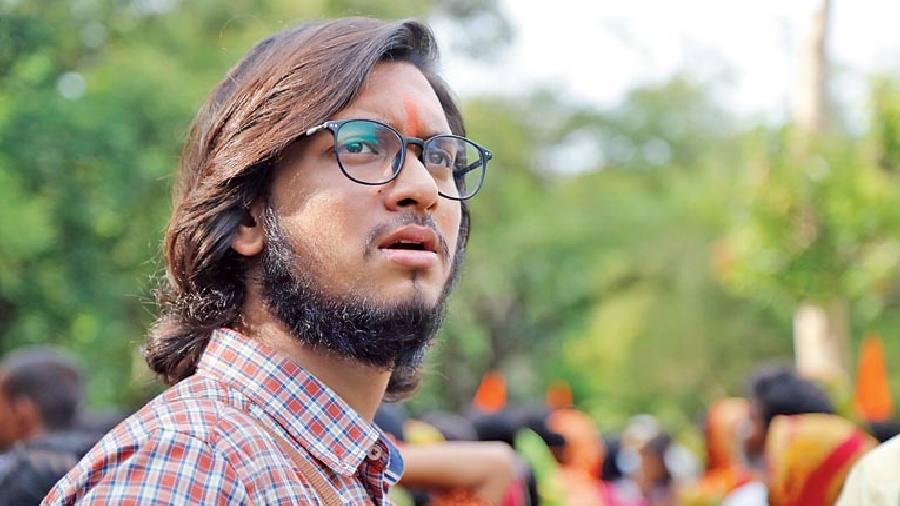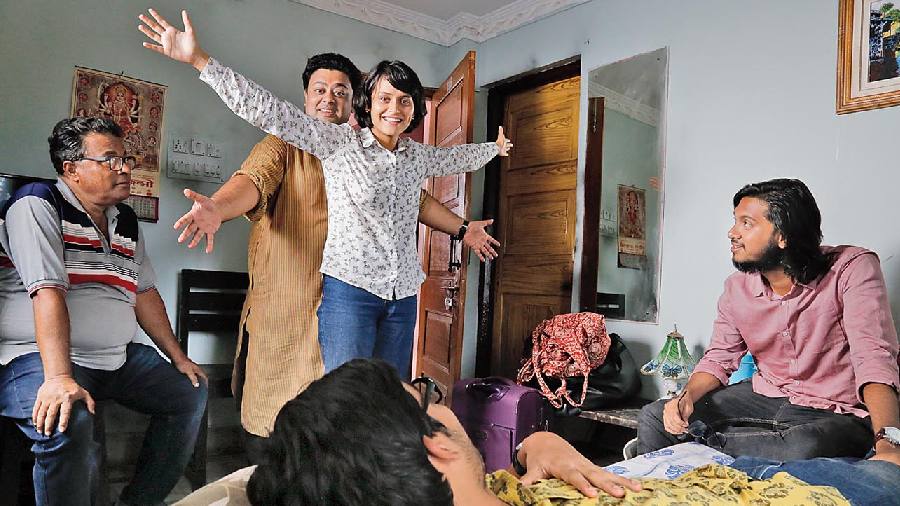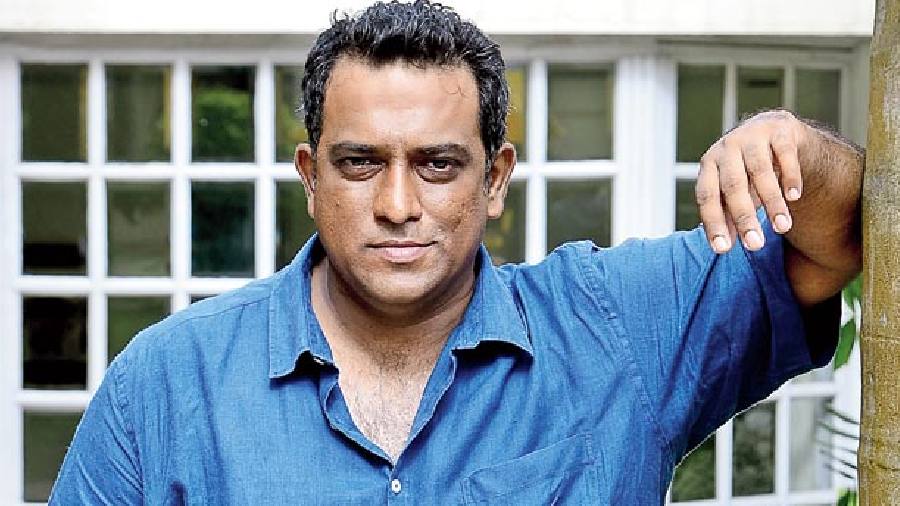It’s been a while since I cried while watching a film — this one broke my streak. Lokkhi Chhele plunges the viewer into the complications and ironies of rural India through a story that is just as heart-wrenching as it is heart-warming.
It is astounding how Kaushik Ganguly delves into the convolutions of Indian existence, and comes back with succinct, coherent findings. It is even more remarkable that his multifaceted messages are presented through a lucid and strong plot arc that is simple to digest and keeps the audience entranced until the end. I’m so envious! Film-makers are always overwhelmed by the endless layers of reality, and are rarely able to convey all of it in a single tale. However, Kaushikda does so with grace and effortlessness.
The film takes us to Hajalganj, to a Dalit community where humanity is bare. In a village that is blinded by illiteracy, yet strengthened by community, we see the repercussions of a ‘godly’ occurance on all sorts of age-old oppression — caste, religion, gender. The coexistence of religion and science, faith and fact, mythology and reality, oppression and solidarity, development and tradition, reveals — and embraces — an India that is mucky gray, where compassion and benevolence might often be appreciated but malice and hatred are rarely punished.

Ujaan Ganguly in Lokkhi Chhele
From the beginning, the viewer finds themselves amongst a group of enthusiastic and justice-seeking medical students, whose ambition and refusal to give up drives the film forward. Their aspirations not only set the tone of the film but also inject hopfullness into a story that is otherwise firmly grounded in the limits of our abysmal reality. On the way, we are questioned: Is law the determinant of morality? Is saving a human life more important than eradicating the ancient injustice faced by an entire community?
Beneath the plot lies the subtle exploration of the relationships between our characters. We see the hesitancy of a protective father in conflict with the mission of his insurgent son.
A couple falls apart and finds their way back to each other for the same reason. A mother finds a child to call her own. A father loses a child to ignorance.
I also thoroughly enjoyed watching the honesty, vulnerability and unity in the core group of characters, as it created a clear, idealistic and pragmatic lens through which to see rural India.
The performances of all the actors were wonderful as well. Especially Ujaan Ganguly, who portrays his character’s heroism with resolve, Churni Ganguly, who showcases the motivation that comes from loss, and Uma Dasgupta, whose character makes the ultimate sacrifice.

In a village that is blinded by illiteracy, yet strengthened by community, we see the repercussions of a ‘godly’ occurance on all sorts of age-old oppression — caste, religion, gender. The coexistence of religion and science; faith and fact; mythology and reality; oppression and solidarity; development and tradition reveals — and embraces — an India that is mucky gray, where compassion and benevolence might often be appreciated, but malice and hatred are rarely punished

Ambarish Bhattacharya and Ritwika Pal
Hindu mantras create most of the background score, weaving together the perspectives of juxtaposing communities.
Its wordings prove to have two profound functions: They reveal the enormous impact of the events taking place by highlighting the ancient context of the setting, and they show that the religions we see today have drifted too far from their roots and true purpose.
The film has a voice and rhythm of its own. Slow-paced but engaging. An enlightening way to spend a couple hours.










